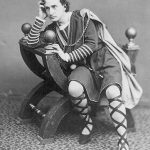This article is written by Sun News contributor Conlan Salgado
Man is misleading, and life is also misleading. I already believe this, and I have not had much experience with it. Now this makes it very important for a human being to develop discernment, in the sense of being able to distill truth from confusion. Many philosophers have espoused the principle that to understand the cause of something is to understand its nature. Perhaps this essay will be built upon the modified principle that to understand the essence of something is to be able to manipulate it. This essay is built on a foundation; my premise is built upon the assumption that all things have an essence, and a trapping, which is the external manifestation of the essence, but which is able to be separated from the essence. It would be convenient to say, generally, that essence is internal, and trapping is external. And I will begin with the most convenient and also complex of all case-studies: the human person.
THE HUMAN PERSON
It would be wrong, almost inhibiting, to say that the body is the only trapping of the human person. The body is the most prominent external feature of the human person, but it is rather more like an instrument than a trapping. As to that, a person’s body has, I would set forth, great possibilities for manipulative expression of internal motivations, but, purely by itself, I think that it sets a mere partial expression of human personhood. A simple example of the human possibility for manipulation of the body to express internal states of being is of a man who is angry clenching his fists, or rubbing his jaw uncomfortably. Now, the better point to begin at for the study of trapping and essence is to investigate what perhaps is the essence of the human person. A curious phenomenon that is at least tangent to this question is the occurrence of what I name the “Overriding” principle. The ‘Overriding’ principle does not seem to appear in other species, or if it does, it appears very minimally. The ‘Overriding’ principle is the principle that enables human beings, frequently, to overrule or object to their natural instinct; for instance, if a certain woman, noticing that her neighbor’s house is on fire, after calling the emergency services, decides to enter the burning building. Now, she decides to enter the burning home because she hears a cry arising feebly from the house, borne out with the billowing clouds of smoke from the windows. The natural animal instinct would be to flee the area, especially because the cry she hears from the house is not the cry of her own offspring. In animalistic terms, the children of her neighbors are competitors against her own offspring. Yet, she, as a human person, is able to object with authority to both her instinct of personal survival (not least for the benefit of her own offspring) and to the principle which should set her against, at least theoretically, any competitors to her offspring. Further to this point, the very idea of a fire department is curiously contradictory for humans, if they be only a species of animal; the idea of a fire department is of a group of men who literally have dedicated their lives to overriding the primal instinct for self-preservation. To increase this conflict of principles, the idea of a fire department is generally of a stronger group (firemen ordinarily have the technical and physical advantage over those who are being rescued) acting to rescue a weaker group, which is a blatant overriding, almost a sacrifice, of the principle of ‘survival of the fittest.’ These conclusions are simple, and yet not unconventional; the first is merely that humans seem to have within themselves a powerful principle, separate in consciousness, or stronger in consciousness, than the natural instincts of the animal. Yet, this example is the affirmation that humans really do possess blatant animal instincts; if this were not true, there would simply be nothing internal to override, or no conflict, in exposing oneself to unnecessary danger. A new question arises then, which will insinuate itself later, and the question is this: Is the animal instinct of the human intrinsically connected to the animal body which man possesses? And if this is so, then must it mean that the ‘Overriding’ principle is separate from the animal-human body; if it is separate, than the ‘Overriding’ principle is a non-physical consciousness that inhabits, and is connected, with the animal-human body. It does not seem sensible that the ‘Overriding’ principle be intrinsic to the animal-human body, because it clearly sets itself opposite to the animal instinct of the human and is able to overrule this instinct.
THE MANIPULATION PRINCIPLE
Now, I should not conjecture too extensively on any scientific principle, because I am not a trained scientist; therefore, Philosophy will be indulged in from now on.
Humanity possesses too a curious principle that inspires perhaps everything it does. Many people have named it curiosity; this characterization is inadequate, even diminutive. This inspiration is a movement of the consciousness, or soul, and seeks after the most original source of the object which is attracting. No other animal possesses this, no other. It is the inspiration which causes a man to gaze at the fathomless sky and desire to understand why it appears the way it appears. It is the inspiration that causes man to wonder why a giant ball of mass is able to hang suspended in the fabric of space without falling. It is the inspiration which causes a man to contemplate, wonder at, and then manipulate his emotions and thought to resemble the sound issuing from a violin. It is the same inspiration that causes men to build monuments to themselves with words, and conjecture on the meanings of life and the life source of the universe. It is the same inspiration that causes a man to stand for many years atop a ladder and portray his perceptions of the universe using crushed pigment on the ceiling of a building. I admit freely that I do not believe, not for an instant, that this inspiration is due to chemical interactions, or electrical signals, or any other natural phenomena. These inspirations are separate from the body; indeed, they exist outside the body. How could I say this? I say it because the human person is able to cast himself outside his body and contemplate himself in the third person. An actor who considers the role of Hamlet, and contemplates the emotions and the thoughts of Hamlet, and then decides upon a particular physical expression of those thoughts, these are the actions of a creature who is able to cast his intellectual faculties outside his skull. In fact, he is able to cast himself so far outside his body that he is able to view it as if he were another person looking at himself. He is able to take in his entire body, and then identify which parts of this instrument he will move and manipulate in order to manifest what is being undergone in his mind. It is the same as if a musician were to look at a piano, and then decide consciously in his mind, which keys he will press. Except the instrument that the actor uses is not a piano, it is his own body. Is not the consciousness and body separate then?
There will be much more to contemplate.















